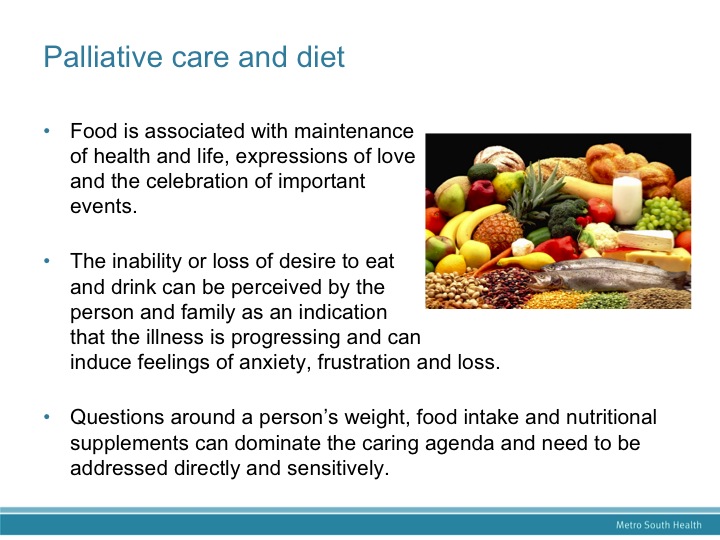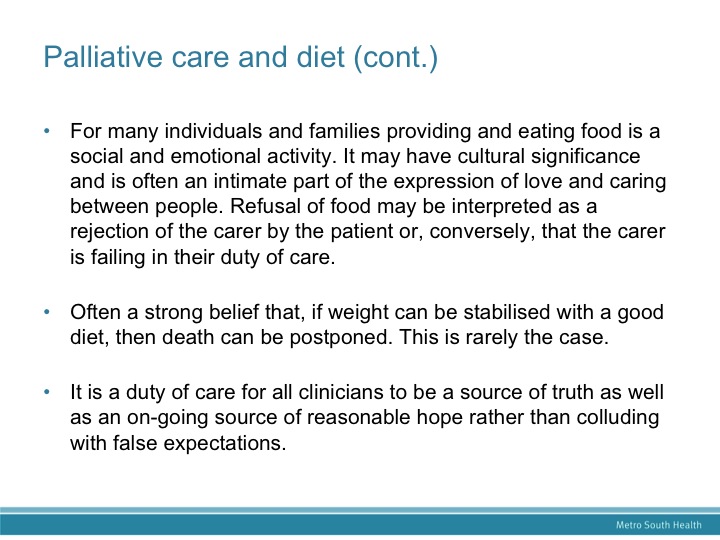Nutrition and palliative care presented by Professor Liz Reymond MBBS [Hons], FRACGP, FAChPM, PhD


Professor Reymond has worked in the area of palliative care for over 16 years. She is the deputy director of the Queensland-based Metro South Palliative Care Services which provides palliative care services to a catchment population of more than one million. She is also the director of the research and education arm of Metro South Palliative Care Services. Her research includes symptom management in palliative care patients and palliative care service delivery and development.
In Australia today, most people live longer and die an expected death from chronic, progressive conditions such as dementia, cancer and frailty syndromes. While nutrition can be part of a treatment plan earlier in these disease process, toward the end of life the focus becomes not so much on treatment but quality of life. We were extremely grateful to have Liz present on some of the complex issues around food and nutrition in end of life care.
Liz described the framework of communication which she uses with the acronym SPIKES
S- Setting up the interview. It is essential that you have time available. This takes at least 30-60 minutes. If you don’t have that time, organise a time when you do.
P- Perception. Gather information. What have the doctors told you? Assess how to pitch your language
I- Invitation. Invite the client to talk about their condition.
K- Knowledge and information. Knowledge is power- use it responsibly. Some people have a need for lots of information, others want only small amounts.
E- Emotional response. Be accepting and open to the emotions your client may show
S- Strategy for future management. Work this out with your client. Be realistic.
Throughout the presentation Liz stressed the need for health practitioners to be a source of truth and reasonable hope and to avoid colluding with false expectations.